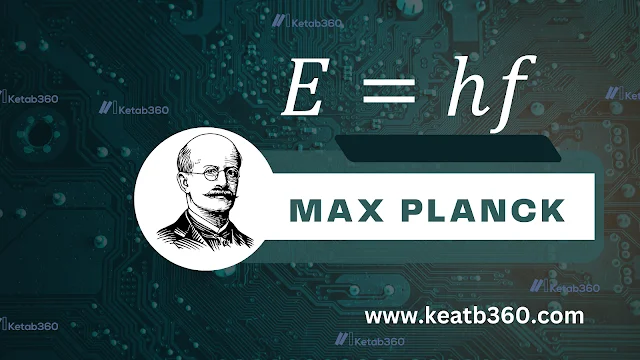Max Planck : Architect of Quantum Theory and Pioneer in Modern Physics
Max Planck, a name synonymous with innovation and groundbreaking contributions to physics, stands as a central figure in the development of quantum theory. Born on April 23, 1858, in Kiel, Germany, Planck’s intellectual journey led to transformative insights that reshaped our understanding of the microscopic world. This article explores the life, work, and enduring legacy of Max Planck, focusing on his pivotal role in the establishment of quantum theory and his profound impact on modern physics.
Early Years and Academic Pursuits:
Max Karl Ernst Ludwig Planck displayed an early interest in the sciences, nurtured by a family with a strong academic background. In 1874, he commenced his studies at the University of Munich, initially focusing on physics. Later, he expanded his academic horizons by studying at the University of Berlin, where he was exposed to the influential teachings of physicists such as Hermann von Helmholtz and Gustav Kirchhoff.
Planck’s early research focused on the second law of thermodynamics and the concept of entropy. His doctoral dissertation, completed in 1879, marked the beginning of a scholarly journey that would significantly impact the course of physics.
Quantum of Action: A Pioneering Concept:
In the late 19th century, physicists grappled with the challenge of explaining the observed spectrum of blackbody radiation. Classical physics failed to provide an adequate explanation, and it was in this context that Max Planck introduced a revolutionary concept—the “quantum of action.“
In 1900, Planck proposed that energy is emitted or absorbed in discrete units, or quanta, and not in a continuous manner as classical physics posited. This groundbreaking idea laid the foundation for what would later become known as quantum theory. Planck introduced a fundamental constant, now known as Planck’s constant (denoted by h), to quantify the discrete nature of energy changes.
Planck’s Law and the Birth of Quantum Theory :
Max Planck’s exploration of the quantum of action culminated in the formulation of his famous blackbody radiation law in 1900. The mathematical expression, known as Planck’s Law, successfully explained the distribution of energy in the spectrum of blackbody radiation, aligning with experimental observations.
Planck’s quantum hypothesis not only resolved the long-standing issue of blackbody radiation but also laid the cornerstone for the development of quantum theory. His work sparked a paradigm shift in physics, challenging classical notions and inspiring a new generation of physicists to explore the quantum realm.
Einstein and the Photoelectric Effect :
Albert Einstein, influenced by Planck’s work, further advanced the quantum theory by applying it to the photoelectric effect. In 1905, Einstein proposed that light consists of discrete packets of energy called photons. This concept, combined with Planck’s quantum hypothesis, explained the photoelectric effect and provided additional support for the quantum nature of light.
Planck and Einstein’s collaboration and correspondence underscored the revolutionary impact of quantum theory on our understanding of the fundamental principles governing the behavior of particles and waves.
Nobel Prize and Later Career :
Max Planck’s groundbreaking contributions to theoretical physics were recognized with the Nobel Prize in Physics in 1918. The award specifically acknowledged his work on blackbody radiation and the establishment of quantum theory. Planck’s acceptance speech highlighted the profound shift in scientific thinking brought about by quantum concepts.
Throughout his later career, Planck continued to contribute to physics and academia. He served as the president of the Kaiser Wilhelm Society (later renamed the Max Planck Society) from 1930 to 1937. However, the rise of the Nazi regime in Germany posed challenges for Planck, who experienced the suppression of academic freedom and the expulsion of Jewish scientists.
Despite facing personal and professional difficulties during this period, Planck remained committed to scientific inquiry and the pursuit of knowledge. His enduring influence on physics extended well into the 20th century.
Quantum Mechanics and Planck’s Legacy :
The development of quantum mechanics, with contributions from luminaries such as Werner Heisenberg, Niels Bohr, and Erwin Schrödinger, built upon Max Planck’s foundational work. Quantum mechanics emerged as a comprehensive framework that described the behavior of particles at the quantum level, incorporating wave-particle duality and the uncertainty principle.
Planck’s constant, h, became a fundamental parameter in quantum mechanics, influencing calculations related to energy, frequency, and wavelength. The integration of Planck’s ideas into quantum theory paved the way for technological advancements, including the development of semiconductors and the field of quantum computing.
Planck’s Enduring Impact and Commemorations :
Max Planck’s legacy transcends his specific contributions to quantum theory. The Max Planck Society, founded in 1948, serves as a testament to his enduring influence on scientific research. This prestigious research organization fosters interdisciplinary collaboration and supports cutting-edge investigations across various fields.
The Planck satellite, launched in 2009 by the European Space Agency (ESA), bears his name and contributes to our understanding of the cosmic microwave background, providing insights into the early universe. The choice of naming this mission after Planck reflects the profound impact of his contributions on our comprehension of the fundamental forces shaping the cosmos.
Conclusion: Max Planck’s Enduring Significance :
Max Planck’s journey through the world of physics transformed the landscape of scientific thought. His introduction of the quantum of action revolutionized our understanding of energy and matter, giving birth to quantum theory and setting the stage for a new era in physics.
Planck’s willingness to challenge conventional wisdom and embrace the revolutionary implications of quantum concepts reshaped the trajectory of theoretical physics. His intellectual curiosity, combined with mathematical rigor, laid the groundwork for subsequent generations to explore the mysteries of the quantum realm.
As we reflect on Max Planck’s life and contributions, we recognize a visionary scientist whose work not only transformed our understanding of the physical world but also continues to shape the forefront of scientific inquiry. Planck’s legacy stands as a testament to the power of bold ideas, relentless curiosity, and the enduring impact of one individual’s journey into the uncharted territories of scientific exploration.






